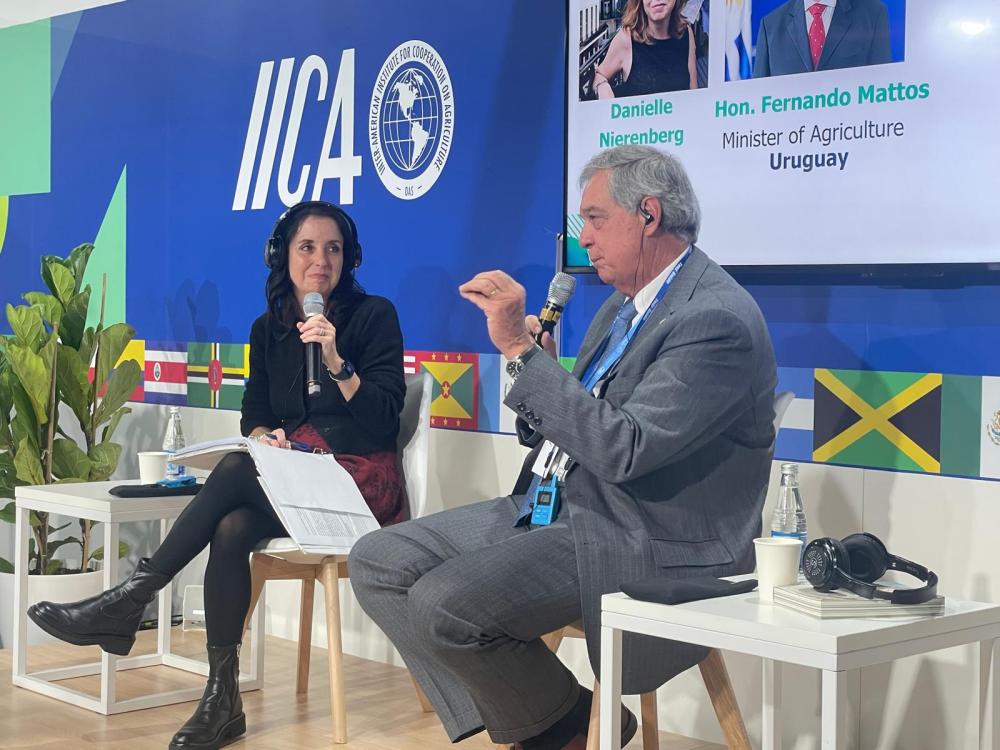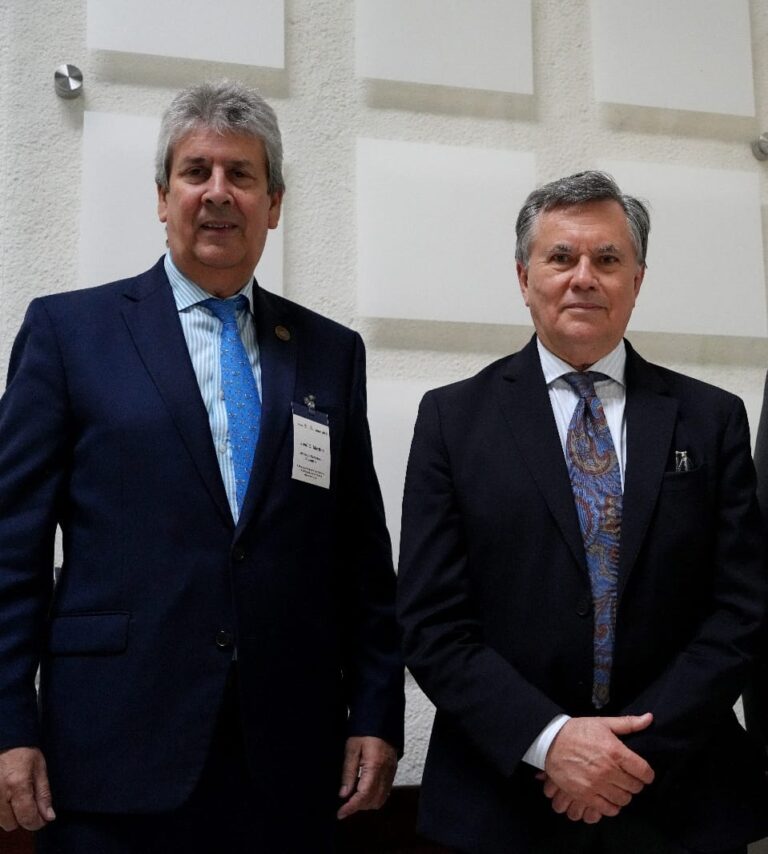The conversation highlighted the need to strike a balance between meeting the growing global demand for food and preserving natural resources while combating climate change.

Baku, Azerbaijan, 18 November 2024 (IICA) –Uruguay’s Minister of Livestock, Agriculture and Fisheries, Fernando Mattos, arrived at COP29 to tell the world that the production sector of the Americas is committed to becoming increasingly sustainable, and, most importantly, that it is not the leading culprit but rather the victim of climate variability.
“I am not afraid to defend livestock farming, which is crucial for human life, and to state that other sectors are primarily responsible for climate change. We must address climate change with a great sense of responsibility; that is why we have come all this way. I congratulate the Inter-American Institute for Cooperation on Agriculture (IICA) on having installed a pavilion at this conference in Azerbaijan to host global discussions on the relationship between the climate crisis and agriculture”, said Mattos.
The Uruguayan minister chairs the Inter-American Board of Agriculture (IABA), IICA’s highest governing body, which brings together the ministers of agriculture of the Americas. Thanks to the support of its partners, IICA has installed its own pavilion at the world’s premier climate negotiation event for the third consecutive year. The pavilion was also set up at COP27 in Egypt in 2022 and at COP28 in the United Arab Emirates last year.
During an event that attracted a great deal of attention from COP29 participants, Mattos spoke with Danielle Nierenberg, President of Food Tank, a non-profit organization that works towards positive transformation in how food is produced and consumed.
The conversation highlighted the need to strike a balance between meeting the growing global demand for food and preserving natural resources while combating climate change.
“It is very important for agriculture of the Americas to have a voice at the Conferences of the Parties to the United Nations Framework Convention on Climate Change. More and more, food security is being spotlighted at these discussions, due to growing awareness of the fact that there will be no peace in the world if food is not available to everyone”, said Mattos.
“We have an opportunity here to talk about our role. We are much more the victims than the generators of this problem. We must be present at these global events, not only to defend ourselves, but to convey agriculture’s importance and commitment to sustainability”, he added.
Philosophy of environmental care
During the dialogue with Nierenberg, Mattos explained that Latin American producers are innate advocates for natural resource conservation; they understand that their future depends on carrying out increasingly sustainable production processes. They have inherited this philosophy of environmental care from their ancestors.
“Fertile soils are a finite resource. The demand for food, on the other hand, seems to be limitless. The growing population is putting greater pressure on natural resources day by day. That is why we must implement the best possible practices: recover degraded soils, use agrochemicals cautiously, capitalize on biotechnology and care for water sources. We are betting on science, research and innovation to bolster productivity in harmony with the environment. This is a considerable challenge, but we are committed to defending production and nature and protecting our future”, remarked Mattos.
“It is unfair to view livestock farming as the villain because of its methane emissions. Part of the world has spread an unfounded narrative that livestock farming makes a significant contribution to climate change. This has no scientific basis. We are working hard to refute this narrative through documented information”, he added.
A key point highlighted during the dialogue was the fact that farming is the only activity that sequesters carbon from the atmosphere and stores it in the soil.
Mattos and Nierenberg also expressed their enthusiasm regarding the fact that the 2025 edition of the Climate Change Conference will be held on the American continent, in Brazil, which will draw further attention to agricultural production.
Lastly, the minister noted that developed countries have a moral duty to provide financial assistance to developing countries that are the primary victims of climate change.
He considered that this financing should reach agricultural producers who implement good practices such as carbon sequestration, forest preservation or good water management.
Lastly, he questioned the European Union’s Deforestation Regulation, whose entry into force was recently postponed for a year. “When we begin to introduce environmental aspects into trade, we are in trouble. That is why we have opposed it. We are not against sustainability in any way, but this sets a dangerous precedent—it generates protectionism. We must now work to reopen channels of dialogue with the European Union”.
More information:
Institutional Communication Division.
comunicacion.institucional@iica.int











